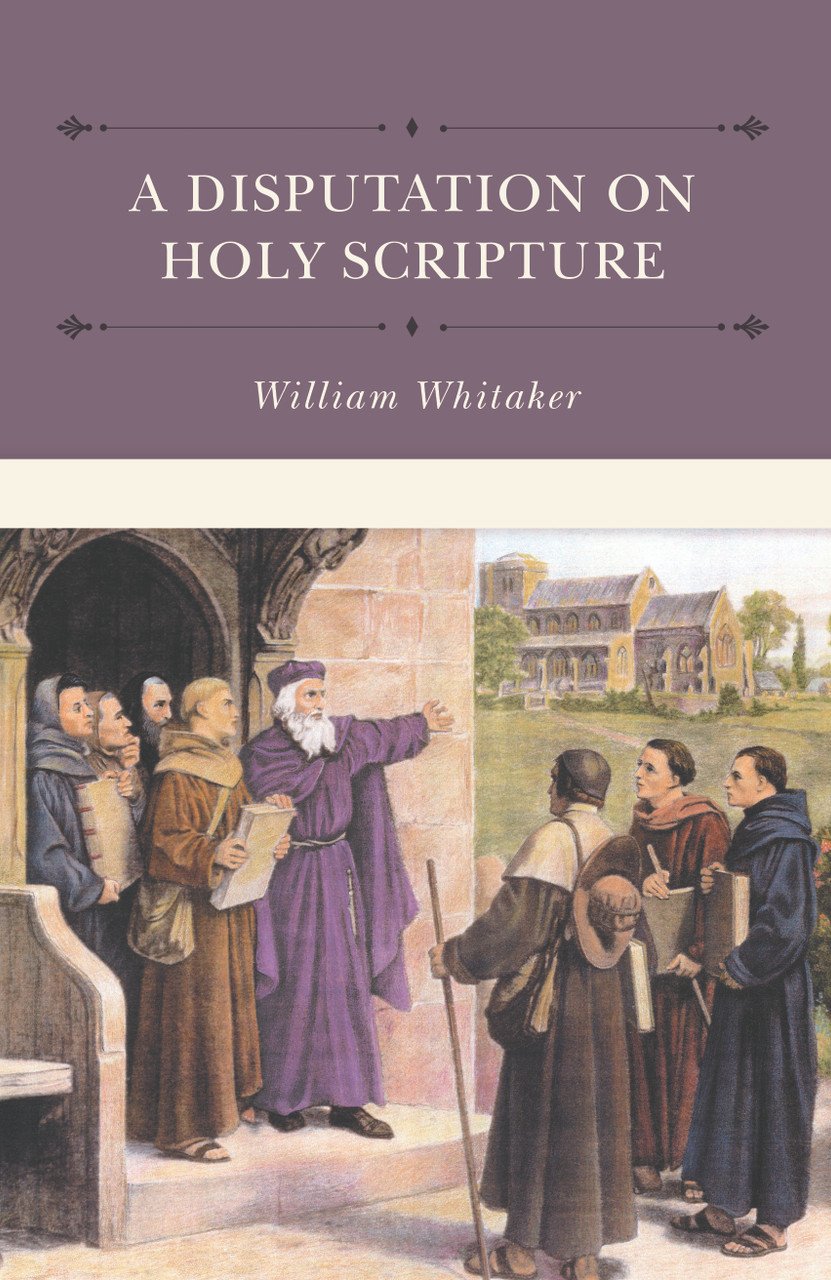Sola Scriptura: The Heart of the Matter
Posted by William Whitaker on 12th Apr 2024
During the Reformation, one of the leading defenders of the Protestant view of the Bible was William Whitaker. In his A Disputation on Holy Scripture, Whitaker went blow-for-blow with the leading Roman Catholic apologists of the day, articulating the view we now know as Sola Scriptura with precision and power. In the following excerpt, Whitaker challenges the Roman Catholic assertion that the authority of Scripture comes from the church:
How should we understand the scriptures’ authority?
As we begin to answer this question, we must return to those words of Christ, which are contained in John v. 39, "Search the scriptures." In these words, Christ has referred and sent us to the scriptures. Therefore, it clearly follows that they are deserving of the greatest trust, dignity, and authority.
The Point of Contention
The question, therefore, that remains between us and the papists is: What gives the scriptures such great authority? What is the nature of this authority? On what does this whole weight of such divine dignity and authority depend? The subject is difficult and perplexing; nor do I know whether there is any other controversy between us of greater importance.
Although I desire, when addressing any question, to draw the doctrine of our adversaries from the decrees of the Council of Trent, I am unable to do so in the present case since the Council of Trent has made no decree or definition upon this question. The opinion of the papists must, therefore, be discovered from their books.
The Jesuit (i.e., Robert Bellarmine) does not address this question of the scriptures’ authority directly. However, this issue is raised in his writings on the controversy concerning councils. Even there, it is treated briefly and superficially. But, since knowing what the scripture’s authority is appertains to its nature and efficacy, I have judged it proper to be treated here.
Those who are esteemed as the most skillful and learned of their scholars now deny that they make the scripture inferior to the church. Bellarmine and the others openly profess this and complain that they are treated injuriously by us in this respect. Nevertheless, because they make the authority of scripture dependent upon the church, they do, in fact, make the scripture inferior to the church. Therefore, we do them no injustice in attributing this error to them. Moreover, it appears in the words of their own theologians. Albert Pighius, for example, asserts in Affirmation of the Ecclesiastical Hierarchy that “all the authority that the scripture now has with us depends necessarily upon the authority of the church.”
Answering Accusations
We will now briefly explain our own opinion on this matter. It does not appear to be a great controversy, and yet it is the greatest. In the first place, we do not deny that it belongs to the church to approve, acknowledge, receive, promulgate, and commend the scriptures to all its members. We say that this testimony is true and should be received by all. We do not, therefore, as the papists falsely say of us, refuse the testimony of the church, but embrace it. However, we deny that we believe the scriptures solely on account of the church’s commendation of them. For we say that there is a more certain and illuminating testimony, by which we are persuaded of the sacred character of these books. That is to say, it is the internal testimony of the Holy Spirit, without which the commendation of the church would have no weight with us.
The Inward Witness of the Holy Spirit
The papists, therefore, are unjust to us when they affirm that we reject and make no account of the authority of the church. For we gladly receive the testimony of the church and admit its authority. However, we affirm that there is a far different, more certain, true, and august testimony than that of the church. The sum of our opinion is that the scripture is “self-authenticating,” that is, it has all its authority and credit from itself. It is to be acknowledged, is to be received, not only because the church has so determined and commanded, but because it comes from God. We certainly know that it comes from God, not by the church, but by the Holy Ghost.
Now, we do not understand ‘the church’ to mean, as they do, ‘the pastors, bishops, councils, and the pope,’ but the whole multitude of the faithful. For this whole multitude has learned from the Holy Spirit that this scripture is sacred, that these books are divine. The Holy Spirit has sealed this persuasion in the minds of all the faithful.
The preceding article has been lightly modernized.

